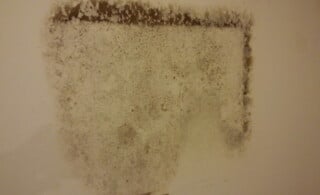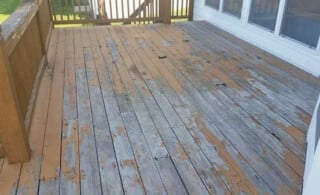There’s no sugar coating it — smoking cigarettes is bad for your health. The combination of poisonous chemicals you inhale when you smoke tobacco increases your risk of myriad negative consequences, from wrinkly skin to lung cancer. In other words, every time you light up, you increase your risk of damage, disease, and death.
But that’s not all. When there’s a smoker in the household, other members of the family also suffer. Breathing in someone else’s smoke, known as secondhand smoke, can be deadly. The smoke that emanates from a lit cigarette, as well as the air a smoker exhales, contains many of the same lung-damaging, cancer-causing chemicals as the smoke they breathe in. So, anyone who is exposed to it is also at risk.
Then, there’s what’s known as thirdhand smoke, which takes multiple forms:
- the pollution that lingers after you extinguish a cigarette,
- the residue that sticks to walls, upholstery, hair, and clothes,
- and secondhand smoke that combines with other air particles to form cancer-causing chemicals called nitrosamines.
The Dangers of Cigarette Smoke
While there is no safe level of exposure to tobacco smoke for people of any age, children, pets, and seniors are especially susceptible to the dangers of secondhand and thirdhand smoke.
Children
In children, the poisonous chemicals in smoke can affect how a child’s lungs grow and develop, leading to severe respiratory diseases, like asthma, bronchitis, and pneumonia. Exposure is also a factor in Sudden Infant Death Syndrome (SIDS) and middle ear infections.
When exposed in the womb, smoking can cause low birth weight, cognitive impairments, and other health problems that can last into adulthood. Women who don’t smoke but are exposed to secondhand smoke during their pregnancy may also give birth to babies with lower birth weight.
One disturbing statistic shows that children are exposed to more secondhand smoke than any other demographic. Since smoke is a toxin that can cause lifelong complications at even low levels of exposure, it’s particularly important that parents and caregivers take proper steps to keep the home, car, and outdoor areas where children spend their time entirely smoke-free.
Pets
For pets, exposure to smoke can result in nervous system issues, respiratory problems and allergies. Dogs may develop nasal or lung cancer, while cats may develop lymphoma.
In addition to being exposed to the smoke directly, your pets also lie on carpet and furniture that contain toxic particles. In many cases, they also lie on your lap to be petted, where they pick up toxins from your hands and clothes. Some pets may ingest even more chemicals by grooming, ingesting cigarette butts, or drinking water that has been contaminated with tobacco.
Like children, pets are not in charge of their exposure. It is the responsibility of the pet owner to take the necessary precautions to ensure a pet is not trapped in an environment where secondhand and thirdhand smoke are present.
Seniors
In the case of seniors, secondhand smoke contributes to cardiovascular disease and lung cancer, as with all adults. However, in older adults, symptoms are more likely to be chronic. There is some evidence that environmental smoke contributes to asthma, chronic obstructive pulmonary disease (COPD), pneumonia, and stroke.
Studies also show that exposure places aging adults at an increased risk for two seemingly-unrelated diseases — dementia and frailty syndrome. The latter is characterized by weakness, exhaustion, low body weight, slow walking speed, and low physical activity.
In short, tobacco smoke in any form can negatively impact the health of your entire family. That’s why it’s so important to keep kids, pets, and seniors safe from cigarette smoke at home. Read on for tips about how to do just that.
Quit Smoking
The first step is the most obvious: if you or someone who lives in your home smokes, quit. Of course, this step is also the most difficult. Smoking is addictive in more ways than one. To quit, you have to break your chemical addiction to nicotine, your habitual addiction to smoking at certain times of day, and your emotional addiction to using cigarettes to combat feelings of sadness, anxiety, and boredom.
That said, there are a variety of approaches to smoking cessation, including:
- Counseling
- Oral medications
- Nicotine replacement in the form of patches, gum, lozenges, inhalers, or nasal sprays
- Laser therapy
- Hypnosis
- Acupuncture
Chances are, if you are ready to kick the habit, you can likely find one or more methods that will work for you. Start by scheduling an appointment with your doctor, and talking him or her through your history, habits, and goals. Don’t be afraid to try different methods. Many cessation tactics can be combined to form a strategy uniquely tailored for you.
Take it Outside
If you aren’t quite ready to give up smoking, the top tip to keep your family safe from cigarette smoke is to never smoke inside. Since smoke can travel through walls, even dedicating a single room of your home to smoking isn’t enough to protect your loved ones from second and third-hand smoke. So, go outside anytime you want to light up, and be sure not to do it near non-smokers.
Here are some other tips to minimize exposure for people and pets:
- Don’t smoke in your car, near playgrounds, or in other areas where people and pets gather. Stay at least six feet away from others while smoking. Secondhand smoke is just as dangerous outdoors as it is indoors.
- Extinguish your cigarette completely when you’re finished, and empty ashtrays into outdoor trash bins away from living spaces. Cigarettes continue to release toxins long after they are put out.
- Wash your hands and face, and change your clothes when you return indoors. Smoked-in clothing should be washed immediately or left outdoors.
Clean House
Even if you quit smoking indoors — or quit smoking altogether — you should be wary of the levels of toxic chemicals inside your home. Gases and ultrafine particles from cigarette smoke remain in the home long after the smoke dissipates. One study concluded through the testing of dust, urine, and hand-wipe samples that inhabitants of a home were continually exposed for more than six months after smoking had ceased.
The good news is that you can reduce your risk by reducing the amount of thirdhand smoke in your home — and the smell that goes with it. In some cases, like with kids’ toys, bedding, and clothes, you’ll need to replace as many items as possible with new, clean versions. In most cases, though, a few deep-cleaning tactics and a lot of elbow grease will do the trick.
Depending on the extent of the damage, you can either do it yourself or use professional services. Regardless of which method you choose, you should focus on three main areas of your home: air quality, fabric (carpets and upholstery), and drywall (walls and ceilings).
Improve Air Quality
- Open doors and windows to air out the home.
- Invest in an air purifier with a high-efficiency particulate air (HEPA) filter and activated carbon to address both smoke particles and odor.
- Hire an HVAC professional to clean your air vents and ducts, and remove residue from within your heating and cooling system.
- Test the air quality in your home to ensure your smoke abatement measures are working.
Clean Carpets and Upholstery
- Sprinkle baking soda on surfaces, and allow it to sit for eight hours. Then use a vacuum with a HEPA filter.
- Rent a carpet shampooer from a local home improvement or big box store. Use smoke-specific cleaning solution with vinegar.
- Hire a professional carpet cleaner to perform a deep clean of all carpeted rooms. Many services will also clean upholstered furniture for an additional fee.
- Replace carpets when moving into a new home and again every 8-10 years.
Wipe the Walls and Ceilings
- Use vinegar or dish soap mixed with water to wash painted walls without damaging the color.
- Hire a cleaning service to clean walls and ceilings with commercial-grade cleaning products.
- Repaint walls using a sealing primer that blocks stains and odors.
- Replace plaster or drywall in areas of the home where people smoked heavily.
In the end, the only way to ensure you, your family, and your pets don’t suffer long-term health effects is to quit smoking as soon as you are able. Until then, it’s essential to reduce exposure to secondhand smoke.

 Lead Paint Common Sense
Lead Paint Common Sense  How Do I Get Rid of the Moldy Odor in My Basement?
How Do I Get Rid of the Moldy Odor in My Basement?  Understanding Toxic Black Mold
Understanding Toxic Black Mold  The Reason for Mold Inspection
The Reason for Mold Inspection  Dry Rot: The Invisible Killer
Dry Rot: The Invisible Killer 

Are You Familiar With This Topic? Share Your Experience.